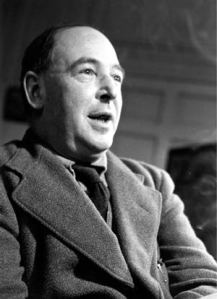Hebrews
Following up on an aside from yesterday’s post, 2 Timothy is the last difinitively Pauline epistle because there’s no consensus about the authorship of Hebrews. Many people consider it to be Paul’s, but there’s no stated authorship, which would be odd for him, and there are significant thematic and stylistic differences between this letter and Paul’s. An old pastor of mine liked to speculate that the reason there is no stated author is that it was written by a woman. Who knows. Regardless, it’s steadily becoming one of my favorite books as I get better acquainted with it.
This book does in essay format what Matthew does via narrative: connect the Christian story with the Old Testament and demonstrate that Jesus Christ is the culmination and fulfillment of Jewish religion, history, and tradition. In this, I’m reminded (yet again) of CS Lewis’ description of Christ as the object to which all other religions point, the subject that ultimately transcends the various pagan narratives.
 It’s almost* as if the writer of Hebrews is using that same construct and listing Judaism in with the pagan religions. The understanding of God as illustrated by the Jewish religion in the Old Testament is incomplete (like the pagan understanding is incomplete), missing out on what the pagans understood: a dying God who embodies the cycle of death and rebirth. Old Testament Judaism supplies what the pagans lack (in a specific historical context of relationship between God and man and an understanding of God’s holiness and Law), and together they point to Christ from different sides.
It’s almost* as if the writer of Hebrews is using that same construct and listing Judaism in with the pagan religions. The understanding of God as illustrated by the Jewish religion in the Old Testament is incomplete (like the pagan understanding is incomplete), missing out on what the pagans understood: a dying God who embodies the cycle of death and rebirth. Old Testament Judaism supplies what the pagans lack (in a specific historical context of relationship between God and man and an understanding of God’s holiness and Law), and together they point to Christ from different sides.
Many Christians refer to their ‘life verse’.* I think that different verses resonate with people at different stages in their lives, reflecting the different circumstances they face and the different aspects of Himself that God chooses to show them at that time. For me, Hebrews contains the verse that, for the last few years, been a go-to for me when I want to dwell in my relationship with God:
4:16 | Let us then with confidence draw near to the throne of grace, that we may receive mercy and find grace to help in time of need.
I’m humbled and encouraged by the fact that the all-powerful creator has called me by name and given me permission to approach His throne boldly to seek His presense and His power in my life.
————
* I say ‘almost’ because the Bible gives an unmistakable, if indecipherable, impression that the Jewish people have been ‘chosen’ by God in a way that others have not, and I don’t want to belittle that by drawing them into Lewis’ illustration.
** Like most things out of the evangelical cultural enclave, this term rings cheesy and somewhat creepy to the outsider. Can we retire such terms in favor of ‘favorite verse’ or some other, non-jargon-y phrase? Thanks.